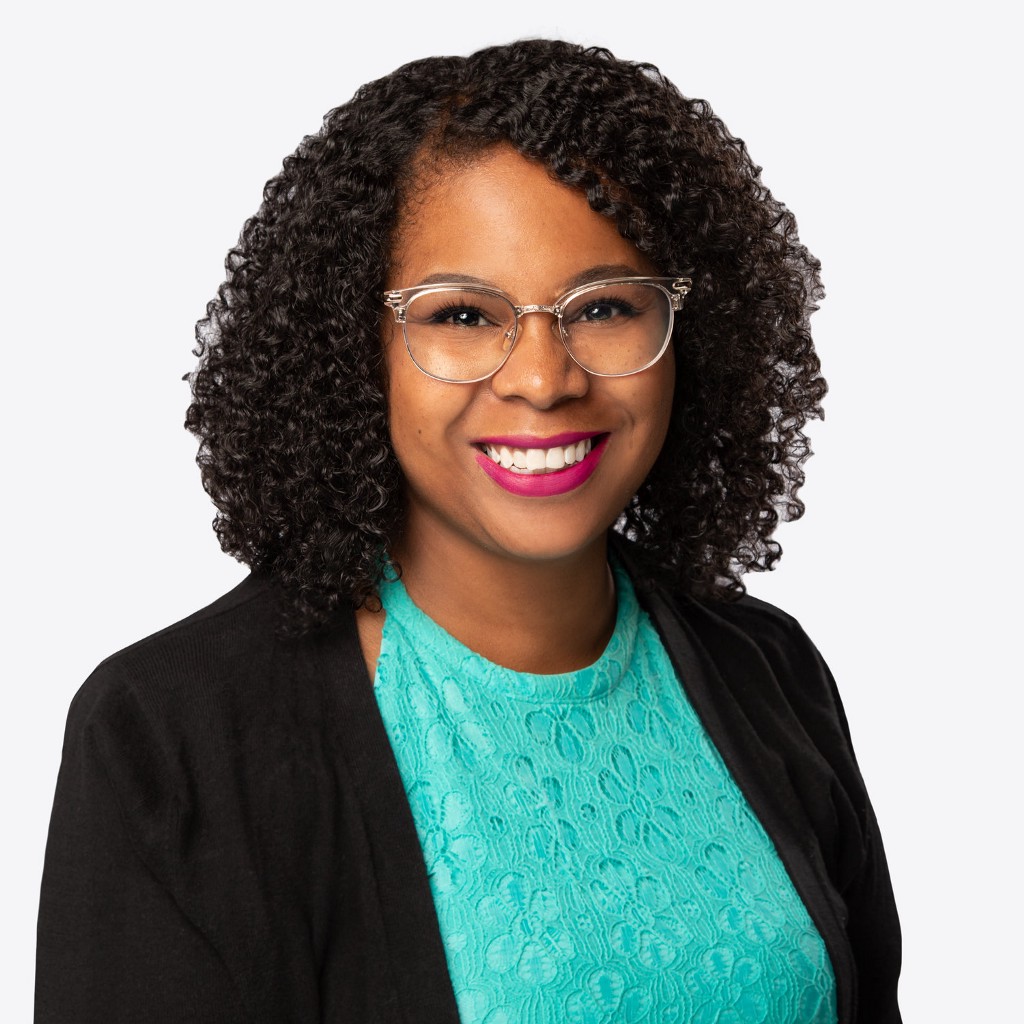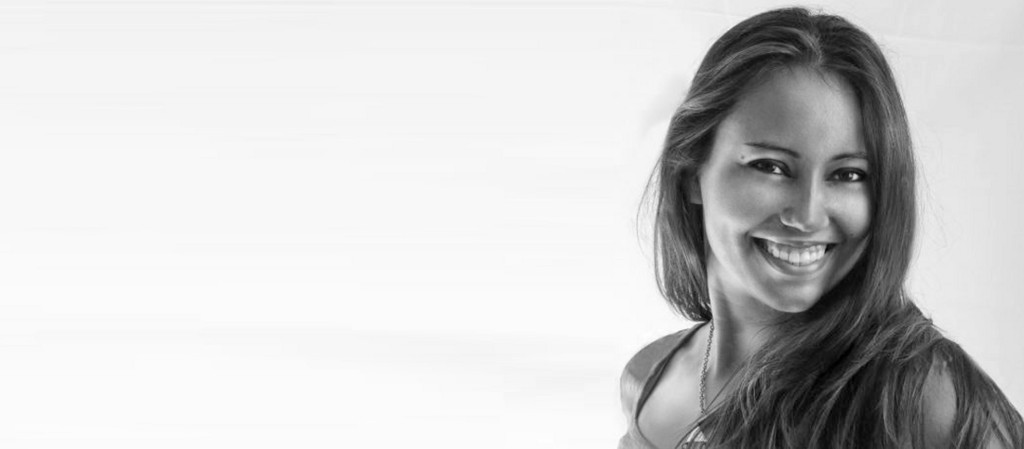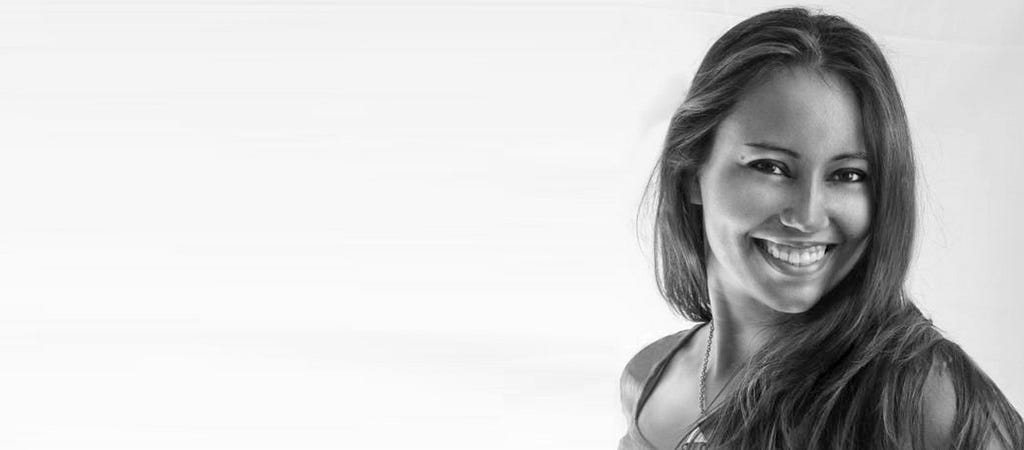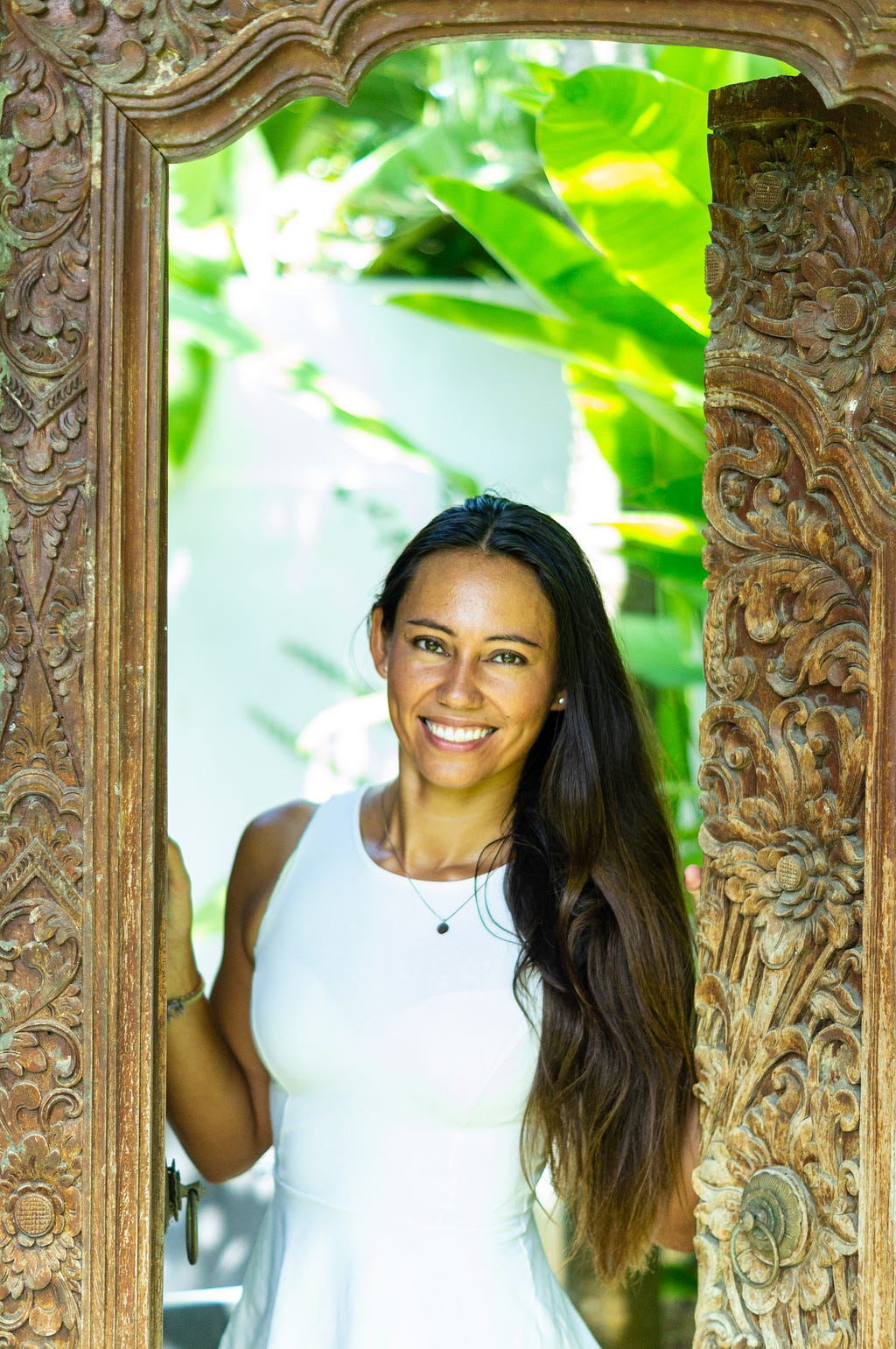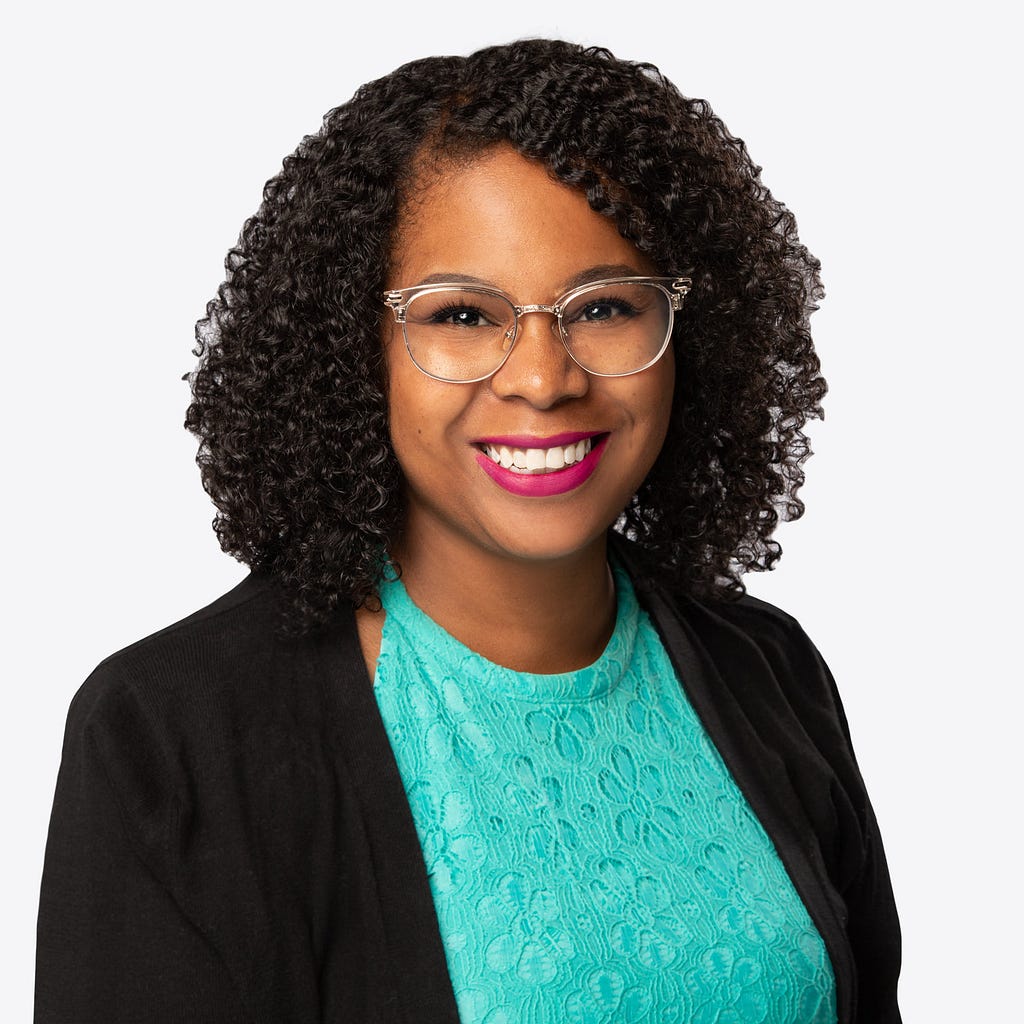
We need to say no more often. No to bad salary offers, No to unreasonable job descriptions, and No to shady business practices. We have to start feeling more comfortable holding organizations accountable for their bad behavior, because let’s be honest they are not going to change out of the goodness of their heart, it’s not in their best interest. But by doing simple things like letting recruiters and organizations know that their bad reputations have lost them amazing talent, on a continuous basis, they might start to see their opportunity costs are skyrocketing.
As part of my series about “the five things we need to do to close the gender wage gap” I had the pleasure of interviewing Brittany Canty. Brittany is a Product Management Leader who has taken her expertise to the Diversity, Equity, Inclusion and Belonging space. She believes the key to equitable change in our society are intentionality and relationship building. Adding in proven Product Management methodologies, she believes we can make lasting change, one organization at a time.
Thank you so much for joining us! Can you tell us the “backstory” that brought you to this career path?
Absolutely! I was working as a Product Manager at a big tech company, and as you can imagine, as a black woman in tech there were very few women of color, much less black women on the engineering side of an organization. As the organization started to roll out some initiatives to increase diversity and inclusion, I started to get involved heavily in multiple areas of the initiatives. I didn’t know it then, but it really set me on a path to make Diversity, Equity and Inclusion work a central part of my career path moving forward and eventually led me to opening up Time is Now consulting.
The Time is Now consulting practice, allows me to work with people and organizations that already know the “why” of DEI, they don’t need to be convinced. What they need is a little help in where to start, and how to measure the effectiveness of their programs. I take a structured approach to the complexity of DEI work, utilizing traditional Product Management methodologies to make impactful and iterative change. I also bring a completely truthful perspective. I don’t hold punches, and I won’t tell you things like unconscious bias training works or that a 1 day workshop is the answer, because its not. Every organization is unique, but the work can be done and change can happen.
Can you share the most interesting story that happened to you since you began this career?
As I got deeper into this space, I got angrier. Angry at the systemic issues, angry at the enablers of bad behavior, angry at the lip service being made but no real impact; but I also got this deep level of calm. I started to find my tribe, the environments that I wanted to work in, the types of missions that I wanted to put my effort behind. It all made me feel more myself and more impactful in the spaces I decided to join.
One example that is probably more sad than funny was when I was early in my career and I was apart of a huge meeting about the product I was managing. There were about 12 people around this conference table, including a few with VP titles, so a very important meeting. At one point I started speaking, I can’t remember exactly what I was saying, but I’m sure I was sharing one of the many opinions I have at any given time. Then one of the more senior Branding team members, who was sitting directly across from me, starts speaking as well. And I’m kind of dumbfounded, because I hadn’t stopped, I was still mid-thought.
I begin to look around the room, wondering if I am imagining that this guy is speaking over me like I don’t exist but all i see is just a see of compassionate faces, from both men AND women in the room, but no one says anything. What made it worse, was that the guy who was speaking over me had looked me in the eye as he was doing it, and as I tried to speak louder he spoke even louder. It was almost as if he didn’t see at all, like I actually didn’t exist. So I eventually just say, out loud, “I guess I’m just going to stop talking now” and the guy across from me continued on like nothing even happened.
Stories like these are what led me to build Time is Now, to really start addressing all the bad behavior in that room. Not just from the person who spoke over me in the very dis-respecful way, but also to all the other 10 people in the room that enabled that bad behavior.
Can you share a story about the funniest or most interesting mistake you made when you were first starting? Can you tell us what lesson you learned from that?
The most interesting mistake that I made when first starting, was not starting! For the last four years, some of my very amazing mentors have been telling me to make my interest in DEI & Belonging work formal and start consulting on DEI because of my passion and perspective for it. And I was very hesitant, I didn’t think it was for me… so I came up with every excuse in the book. Fast forward, as I was talking to others and encouraging them to make their leaps of faith, and it hit me that I wasn’t practicing what I was preaching. I struggle with the same things that I talk about, but the important lesson I learned was to continually ask yourself “why not you?” Does your future have a greater chance of materializing if are a part of it? The answer is yes… so let’s do it!
Ok let’s jump to the main focus of our interview. Even in 2019, women still earn about 80 cents for every dollar a man makes. Can you explain three of the main factors that are causing the wage gap?
First and foremost, I believe everyone has a part to play, everyone. It’s not just an organization’s fault. It’s not just an allyship problem. It’s not all on the back of men or women. It’s everyone’s problem. So I view the main factors across the full spectrum.
We can start with how companies are determining salaries. They are using antiquated practices to tie “experience” to value, when they are not the same thing. Experience, when determining salary, is generally is a time-based measurement which never gives you the full picture. Anyone that’s worked in a start-up or an early stage company can tell you that a person can do more in 3 months in a startup than others might be able to do in 3 years at an established enterprise.
Time-based value doesn’t make sense in our world anymore. It also just compounds the inherent racism or sexism that happens throughout the rest of the employment process. If companies promote more men than women into senior roles, how is a woman supposed to get enough “experience” in order to close that gap within the same timeframe? It’s not possible.
Secondly, as a society we don’t talk about salaries enough, and this is both on the candidate and the recruiter side. I would challenge anyone looking for a job to ask, both men and women, at their target companies and complementary companies what they are making. The only way to really know what the market value is, is to get it directly from people doing that job that you want. There are many stories of women will finding out that they are making an obscene amount less than a male coworker, just because they didn’t know what the actual rate was. This is something that we all can do to mitigate the gap. From the recruiter side, I would challenge them to be upfront about the salary range from the beginning. If you are talking to a candidate, then you already think that they might be a good fit. There’s no real reason to wait until after a 3 week or more interview process to share this information. It’s a complete waste of time for both your organization and the candidate.
Lastly, I feel that fear is also a factor contributing to the wage gap. Fear that’s evident on both sides of the table, but I’ll speak specifically to the fear that women might feel when they are interviewing. We see and hear a lot about imposter syndrome and how women need to negotiate more, but what I haven’t seen anyone acknowledge is how fear plays into this story as well. As a candidate, sometimes you are in real NEED of a job more than you just wanting the job. You could be escaping a toxic workplace, or maybe you took some time off and now you need income to survive. Sometimes that ‘desperation’ really has an effect on how a candidate can present themselves. I’ve been guilty of it as well. I’ve been in situations where I low-balled myself, proactively, because I REALLY wanted that job and I wanted to make myself seem more attractive. But at the end of the day, it doesn’t do anyone any good. Not only does it perpetuate the wage gap and ridiculous stereotypes, but it also tells your potential employer how much YOU value yourself and your skillset. Once you set that precedent, it’s very hard to change so it’s best to come out strong. And the reality is, is that if an organization is “turned off” by a high salary request, they are likely never going to be a company that would pay you what you’re worth and it’s not an organization worth your time.
Can you share with our readers what your work is doing to help close the gender wage gap?
My work with Time is Now, is to bring awareness and innovation to the old ways of doing things. Companies have done the same things decades after decades to no avail, so I’m trying to switch things up and question all the things that go unquestioned everyday. All those “best practices” that just enable the existing outcomes, i.e. a wage gap, I want to throw them out the window and be intentional about how to take action and actually close that gap.
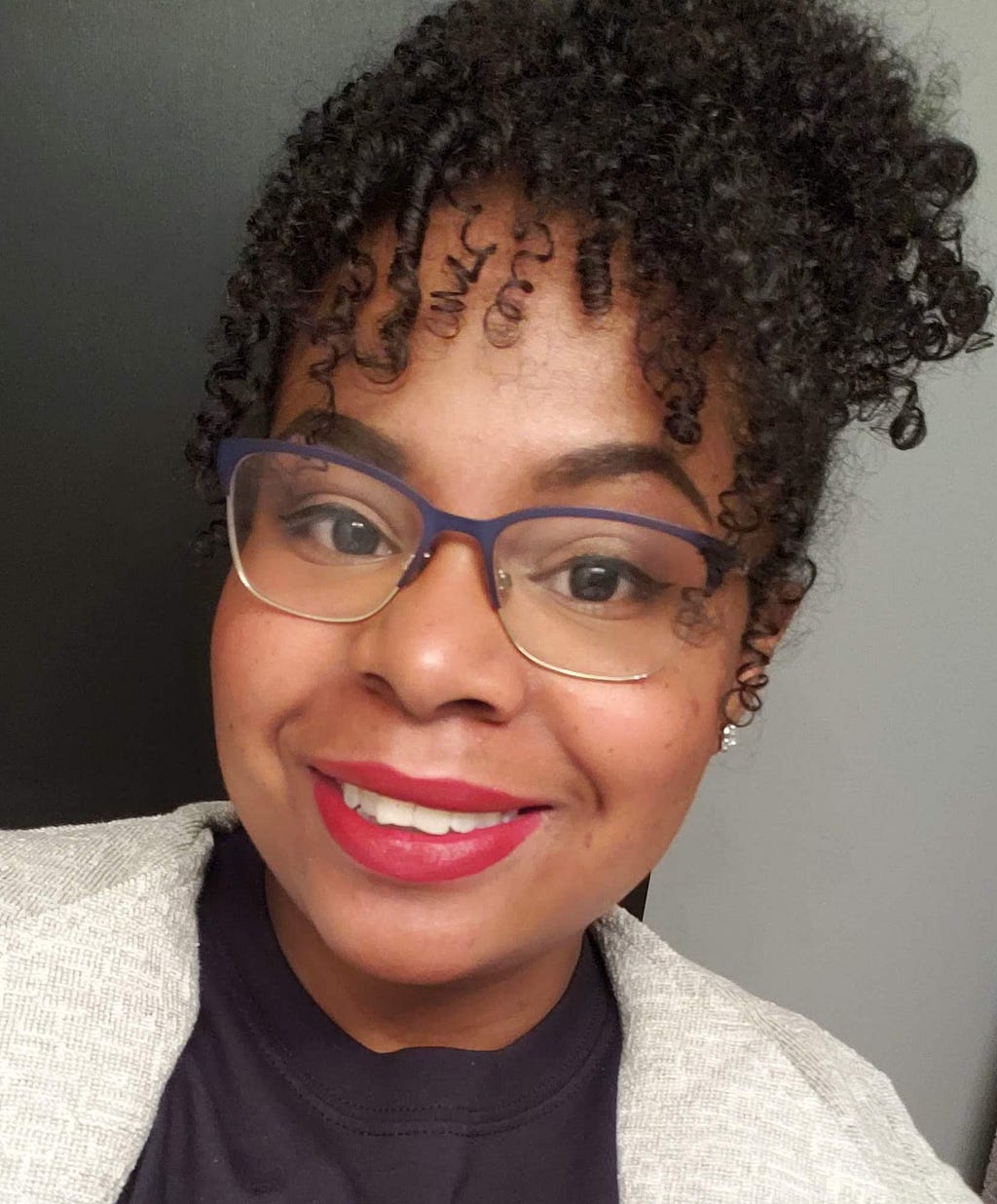
Can you recommend 5 things that need to be done on a broader societal level to close the gender wage gap. Please share a story or example for each.
We need to be more open about salaries, not just for a person’s current role but also their entire career path at that organization. Talking about salaries shouldn’t be taboo because it’s an integral part of our lives and our wellbeing. If we are to close the gap, there’s no way we are going to do it in silence. This is not only going to help women, but everyone!
I would love to see the day where a job req not only listed the role’s salary but is also clear about the full career path at the organization, where the opportunities are for growth and their typical timeline of promotion. Can you imagine how many more people would be able to self-select into that experience? They would know much more about the organization that they would potentially be entering and in turn would reduce the turnover that occurs from an employee’s feelings of a bait and switch. I can only imagine the level of ROI with such a simple change.
Be clear on the career path at the organization and what it looks like. Employees should never have to guess what it takes to get to the next level, what that level looks like, and what they need to do to get there. The lack of clarity from an organization is not a good sign, and an employee might be surprised at the expectations of them and choose to opt-out to find a more accommodating organization.
We need to say no more often. No to bad salary offers, No to unreasonable job descriptions, and No to shady business practices. We have to start feeling more comfortable holding organizations accountable for their bad behavior, because let’s be honest they are not going to change out of the goodness of their heart, it’s not in their best interest. But by doing simple things like letting recruiters and organizations know that their bad reputations have lost them amazing talent, on a continuous basis, they might start to see their opportunity costs are skyrocketing.
There needs to be outside agents actually reviewing pay equity at organizations. This can’t be done in-house — it’s a clear conflict of interest. Can you trust that an addict won’t spend any money given to them, on alcohol or drugs? Then, why are we expecting organizations that have an issue with pay equity to be the ones saying “oh, we fixed it,” and then leave it at that, without ANY data to prove that they did. I personally doubly question any organization that says they have complete pay equity without seeing the data for myself, and how many organizations do you think publish those reports… I have yet to see one.
You are a person of great influence. If you could inspire a movement that would bring the most amount of good to the most amount of people, what would that be? You never know what your idea can trigger. 🙂
I would make resumes and similar documents illegal. They’ve been proven to enable an established practice that perpetuates privilege and systemic oppression. What people all over this world want, is an opportunity to prove that they can do the job. Can you imagine what the world would look like if people were actually doing, learning and perfecting without first being ‘weeded out because they don’t look like the model’. No one wants a hand out, they just want an opportunity to succeed.
Can you please give us your favorite “Life Lesson Quote”? Can you share how that was relevant to you in your life?
“Get Angry”- I feel like anger gets a bad rap at times. We can do a lot of positive things with anger. When I got angry about the inequity that I was seeing in Corporate America, it led me to DEI and Belonging work. It helped me find my voice, and it helped me focus my passion on making lasting change so someone, hopefully sooner than later, doesn’t have to be angry over the same things that I am. So when you focus your anger on what needs to change, sometimes that’s all you need to pursue the things that you were meant to do.
We are very blessed that some of the biggest names in Business, VC funding, Sports, and Entertainment read this column. Is there a person in the world, or in the US whom you would love to have a private breakfast or lunch with, and why? He or she might see this, especially if we tag them. 🙂
Michelle Obama. Hands down. She has been such an inspiration to me and many more like me. At the highest offices, she’s dealt with pure vileness and has done it with pure grace, and never lost sight of the bigger mission. I would love to be in the presence of such amazing #BlackGirlMagic!
This was really meaningful! Thank you so much for your time.
“5 Things We Need To Do To Close The Gender Wage Gap”, with Brittany Canty and Candice Georgiadis was originally published in Authority Magazine on Medium, where people are continuing the conversation by highlighting and responding to this story.


